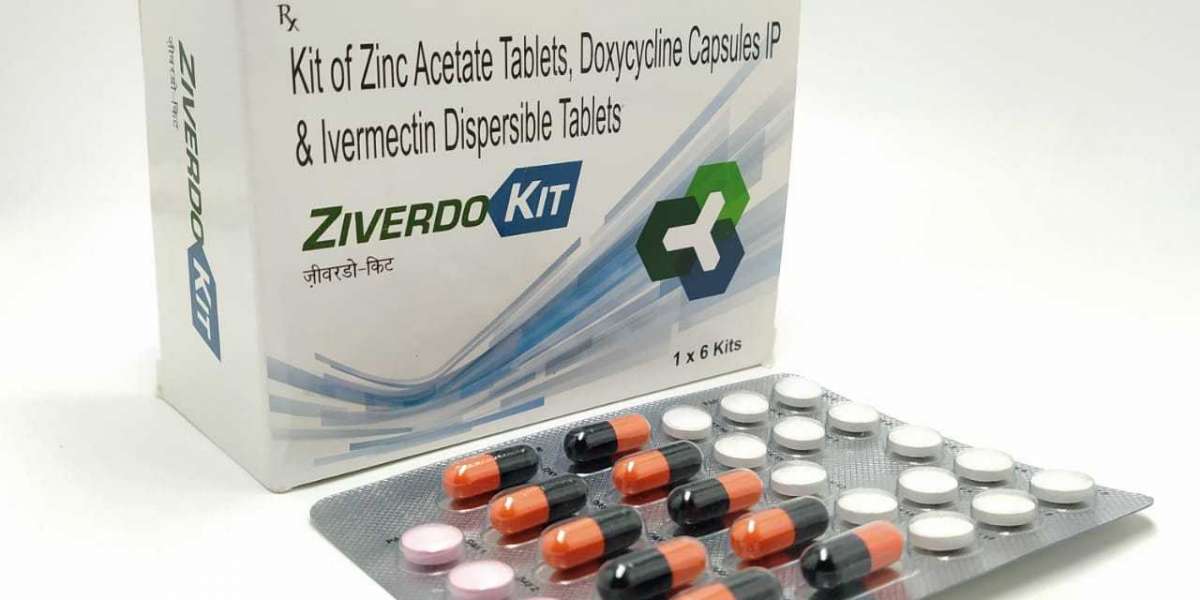In the realm of medicine, especially during times of global health crises, new treatments and therapies often emerge as potential solutions to combat various ailments. One such emerging treatment is the Ziverdo Kit, a combination therapy comprising zinc, ivermectin, and doxycycline.
While its efficacy and safety are subjects of ongoing research and debate, understanding who might benefit from such a kit is essential. In this blog post, we delve into the potential beneficiaries of the Ziverdo Kit and explore the contexts in which it might prove beneficial.
COVID-19 Patients:
Amid the COVID-19 pandemic, the Ziverdo Kit has garnered attention as a potential treatment option. Some studies suggest that the combination of ivermectin, doxycycline, and zinc may have antiviral and anti-inflammatory properties that could aid in managing symptoms and reducing the severity of the illness.
However, it's crucial to note that the efficacy of this kit in treating COVID-19 is still being studied, and individuals should consult healthcare professionals before using it.
Patients with Parasitic Infections:
Ivermectin, one of the components of the Buy Ziverdo Kit, is well-known for its efficacy against various parasitic infections, such as scabies and certain types of worms.
Therefore, individuals diagnosed with such infections may benefit from the administration of ivermectin as part of the Ziverdo Kit, particularly when prescribed by a healthcare provider.
Those with Zinc Deficiency:
Zinc is an essential micronutrient vital for numerous physiological processes, including immune function, wound healing, and DNA synthesis.
Individuals with zinc deficiency may benefit from supplementation, and the inclusion of zinc in the Ziverdo Kit could be advantageous for such individuals, especially if prescribed under medical supervision.
Patients with Bacterial Infections:
Doxycycline, another component of the Ziverdo Kit, is a broad-spectrum antibiotic commonly used to treat bacterial infections such as acne, respiratory tract infections, and certain sexually transmitted diseases.
Patients diagnosed with bacterial infections susceptible to doxycycline may find the kit beneficial in managing their condition.
Individuals at Risk of Viral Infections:
Zinc has been studied for its potential role in supporting the immune system and reducing the duration and severity of viral infections, such as the common cold.
Therefore, individuals at risk of contracting viral illnesses, particularly those with compromised immune systems, may consider using the Ziverdo Kit as a preventive measure, although consultation with a healthcare provider is advisable.
People in Areas with High Parasitic Burden:
In regions where parasitic infections are prevalent, the Ziverdo Kit may serve as a valuable tool in public health initiatives aimed at controlling and treating such infections.
By providing a combination therapy that targets multiple parasites simultaneously, the kit could contribute to reducing the burden of parasitic diseases in affected populations.
Healthcare Professionals:
For healthcare professionals, the Ziverdo Kit represents a potential treatment option to consider in certain clinical scenarios. Keeping abreast of the latest research findings and guidelines regarding the use of the kit is essential for informed decision-making and patient care.
In conclusion, the potential beneficiaries of the Ziverdo Kit encompass a diverse range of individuals, including COVID-19 patients, those with parasitic or bacterial infections, individuals with zinc deficiency, and those at risk of viral infections.
However, it's crucial to emphasize that the use of the Ziverdo Kit should be guided by healthcare professionals based on individual patient characteristics, medical history, and prevailing clinical guidelines. Additionally, further research is needed to fully elucidate the efficacy, safety, and appropriate indications for this combination therapy.








